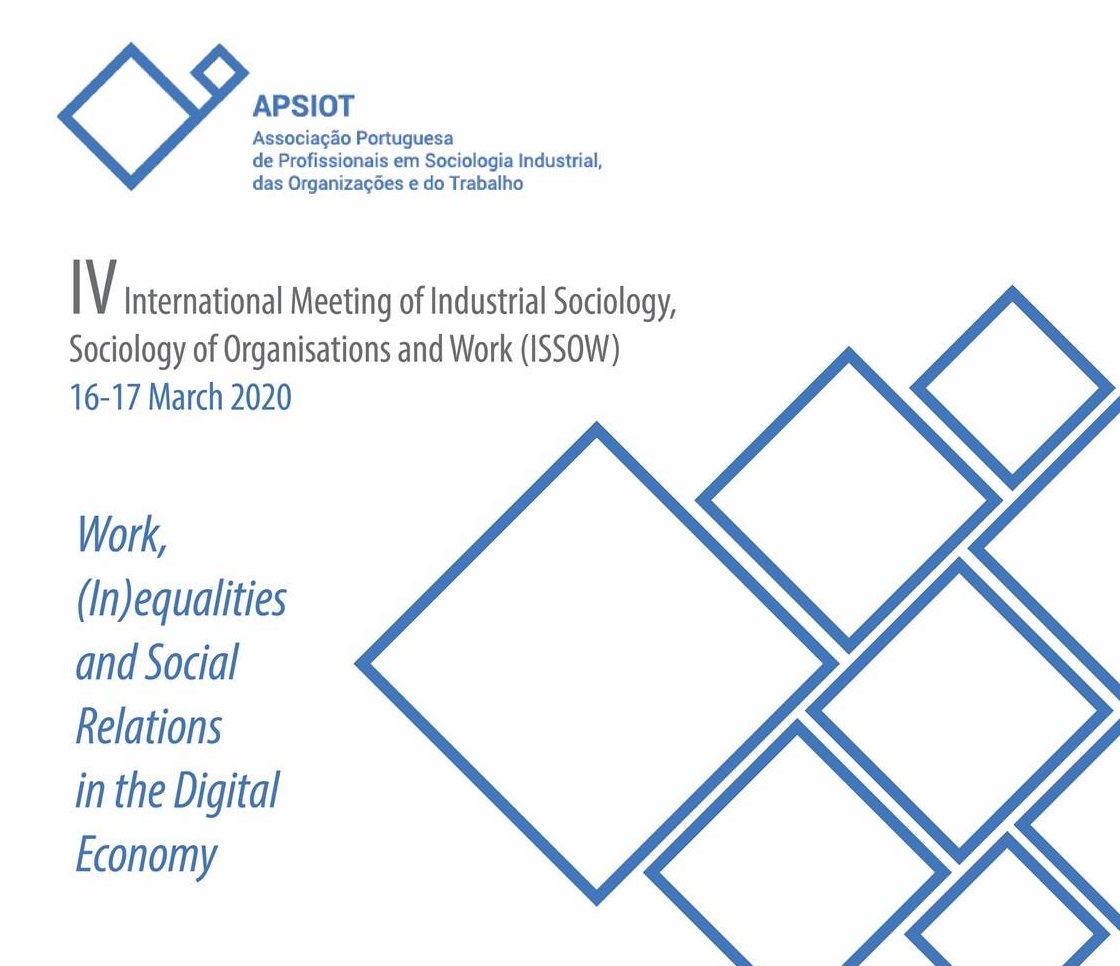
The IV International Meeting of Industrial Sociology, Sociology of Organisations and Work (ISSOW) will explore the multiple and complex implications of the digital economy on working conditions, working time and work-life balance, labour relations, skills and occupations, gender and social inequalities, subjectivities and regulatory institutions.
Advanced technologies, ICTs, robotics and artificial intelligence are accelerating the reconfiguration of occupations, skills, working conditions, labour relations and work organization. Digital platforms are giving rise to new business models, new forms of hiring, managing and controlling. Labour processes across diverse industries are rapidly changing, as well as power relations and subjectivities at work. While new occupations are emerging and new skills are being demanded from the workforce/service providers, many jobs are rendered obsolete and/or relocated globally.
Digital technologies are also profoundly transforming the locations from where people work, how they work and when work is performed. While optimistic accounts see the increasing panoply of technological devices, IT services and networks as sources of greater quality of life, critical tones stress the blurring of boundaries between paid work and non-paid work activities; Yet, despite the widespread changes, complex patterns of social inequality and labour market discrimination are shaped by gender, age, ethnic/cultural background and social class. The institutional and regulatory structures also need to be brought into the sociological debate.
Papers focusing in the following topics are particularly welcome
1 – Working conditions and labour relations in the digital economy
2 – The (global) digital labour platforms and the ‘uberisation’ of work
3 – The impact of digital technologies on working time and work-life balance
4 – Innovation, occupations and skills in the digital economy
5 – Training and employment in the digital economy
6 – The role of public policies and regulatory institutions
7 – Gender and the digital economy
Abstracts
Abstracts must not exceed 350 words and include the research purposes, the methodology and the main results.
Languages of the Meeting: Portuguese, English, Spanish and French.
Maximum number of papers per author: 2
Registration/Abstracts
Important dates
Early-bird registration due date/value: 15 December 2019 / Fee: 70€
Late registration due date/value: 23 February 2020 / Fee: 90€
Submission deadline: 15 December 2019 (extended to 6 January 2019)
Notification of acceptance: 17 January 2020
Organizing Committee
Professor Sara Falcão Casaca
President of APSIOT: Doctor Paula Urze
Contacts
APSIOT – Lisbon
Contact: apsiot@net.vodafone.pt
Website
